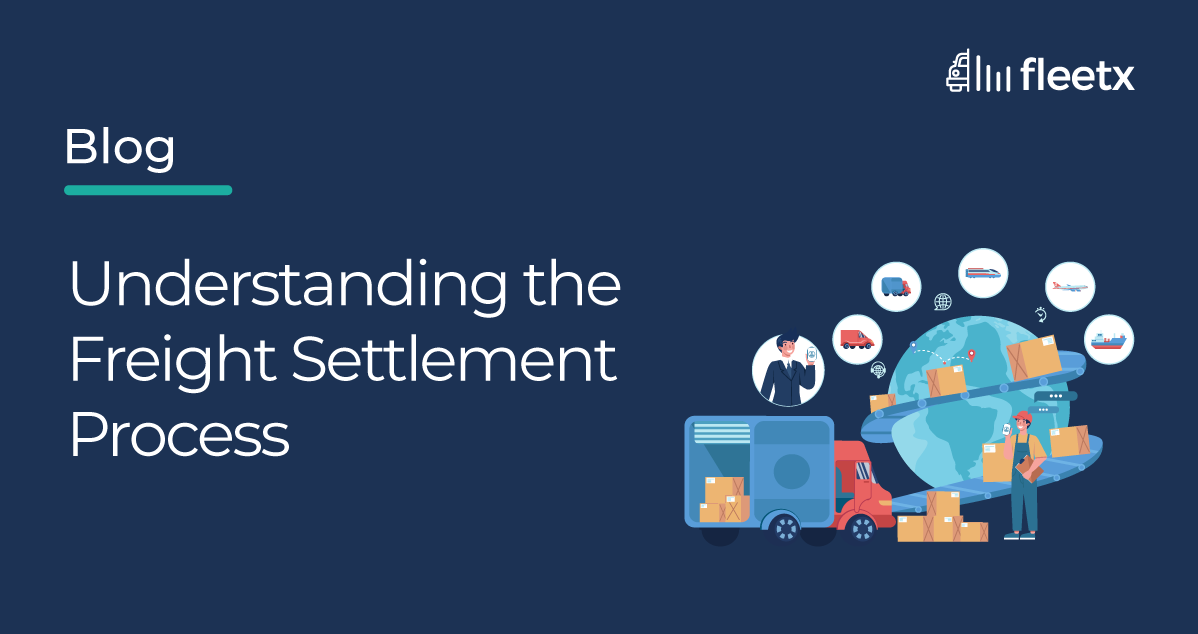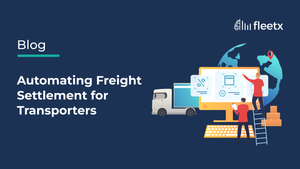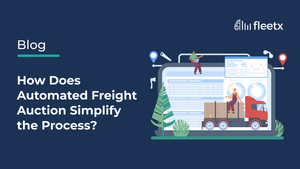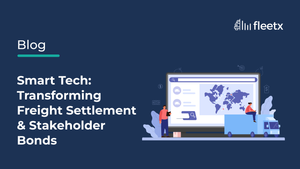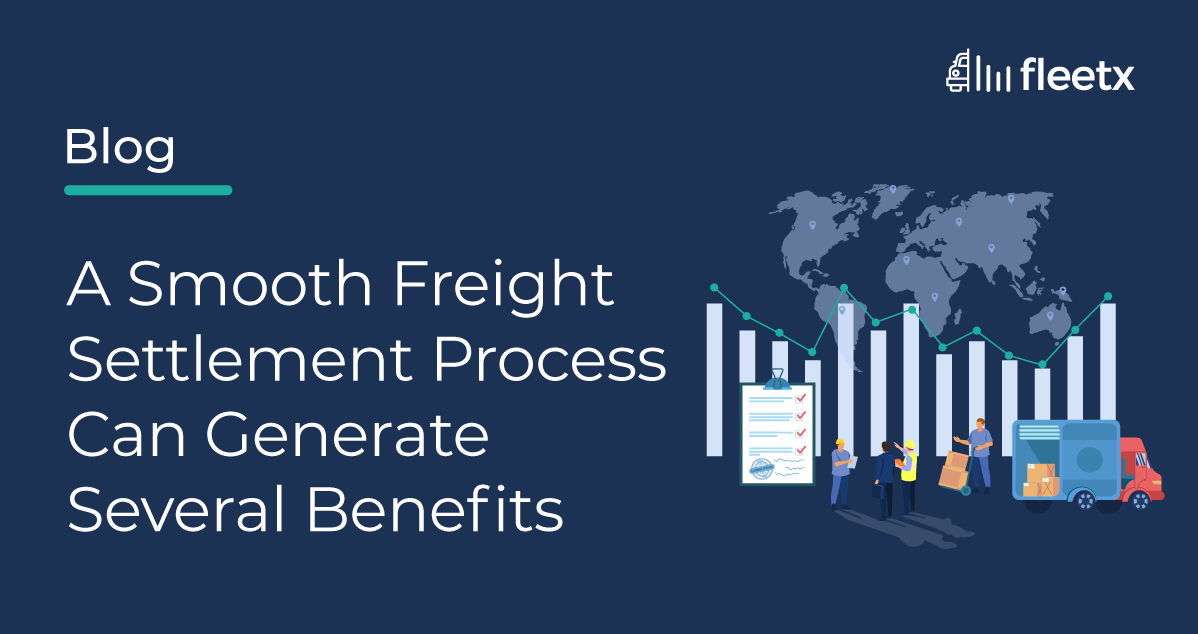
Implementing streamlined freight settlement processes offers significant advantages for logistics companies. Part 1 of this series explained the freight settlement process in detail, while this article will discuss the need for and power of collaborative platforms and ecosystems in the freight settlement process, elaborate on the benefits generated and share some of the documented best practices in the industry to create a seamless freight settlement process.
Quick Insights: The Short Version of This Blog
- Implementing streamlined freight settlement processes offers significant advantages for logistics companies.
- Collaborative platforms and ecosystems play a crucial role in enhancing transparency, communication, and decision-making in freight settlement processes.
- Best practices for smooth freight settlement include standardizing documentation, embracing automation, enhancing communication and collaboration, and implementing real-time tracking and visibility.
- Key benefits of a smooth freight settlement process include reduced administrative burden, improved accuracy, faster payment cycles, enhanced transparency, strengthened vendor relationships, and cost savings.
- By implementing efficient practices and leveraging technology, logistics companies can optimize their settlement processes and achieve a more streamlined logistics landscape.
The Need for Collaborative Platforms and Ecosystems
Collaborative platforms are vital in the logistics industry, connecting stakeholders and facilitating seamless communication, data sharing, and collaborative decision-making. These platforms offer several benefits for efficient freight settlement processes. They provide a centralized hub for stakeholders to communicate and collaborate effectively, thereby enhancing transparency, reducing delays, and enabling faster issue resolution. Collaborative platforms further enable seamless data sharing and integration, eliminating data silos and empowering stakeholders to make informed decisions based on accurate information.
By automating manual tasks and streamlining workflows, these platforms enhance efficiency, reduce errors, and expedite freight settlement. Real-time visibility and tracking capabilities improve proactive issue resolution and customer service. Collaborative decision-making is facilitated through features like data analytics and reporting tools, optimizing operational efficiency and cost savings. Furthermore, collaborative platforms foster stronger relationships and connectivity within the logistics ecosystem, leading to improved service levels, negotiation capabilities, and reliability in freight settlement.
Smooth Freight Settlement: Best Practices in the Industry
1. Standardize Documentation: Establish standardized freight documentation, including freight bills, invoices, and supporting documents, to ensure consistency and accuracy in the settlement process. Clearly define the required information, such as shipper and consignee details, shipment specifications, charges, and terms.
2. Embrace Automation: Adopt automation tools and software solutions for freight settlement processes. Utilize electronic data interchange (EDI) systems like EPOD, automated invoicing, and digital documentation to streamline data flow, reduce manual errors, and improve efficiency.
3. Implement Clear Payment Terms: Clearly define payment terms and conditions in contracts or agreements with shippers and carriers. Specify the timeframe for payment, any applicable discounts or penalties, and the preferred method of payment. Clarity in payment terms helps to avoid disputes and ensures prompt settlement.
4. Enhance Communication and Collaboration: Foster open and transparent communication between shippers, carriers, and logistics service providers throughout the freight settlement process. Promptly address any issues or disputes, and establish efficient channels for communication, such as dedicated points of contact or digital platforms.
5. Real-time Tracking and Visibility: Utilize real-time tracking systems to monitor shipment status and share relevant information with stakeholders. Enhanced visibility into the movement of goods allows for accurate tracking of delivery milestones and helps prevent delays or disputes during the settlement process.
6. Conduct Regular Audits: Perform regular audits of freight invoices and settlement processes to ensure accuracy and compliance with agreed-upon terms. Identify and rectify any discrepancies or errors promptly to maintain trust and avoid prolonged settlement cycles.
7. Implement Dispute Resolution Mechanisms: Establish effective dispute resolution mechanisms to address any disagreements or discrepancies in the settlement process. Create clear guidelines for dispute resolution, including escalation procedures and timelines, to streamline the resolution process and avoid unnecessary delays.
8. Data Integration and Sharing: Foster data integration and sharing between different stakeholders involved in the freight settlement process. Utilize API integrations and cloud-based platforms to facilitate seamless exchange of information, automate data reconciliation, and improve overall efficiency.
9. Continuous Process Improvement: Regularly evaluate and refine freight settlement processes to identify areas for improvement. Seek feedback from stakeholders and leverage technology advancements to optimize efficiency, accuracy, and transparency.
10. Maintain Documentation and Records: Maintain comprehensive records of all freight settlement transactions, including freight bills, invoices, payment receipts, and relevant communication. Organized documentation facilitates easy access, audit trails, and efficient resolution of any future inquiries or disputes.
Benefits of a Smooth Freight Settlement Process
Streamlined freight settlement processes bring significant benefits to logistics companies. By adopting efficient practices and leveraging technology, organizations can optimize their settlement processes and achieve a more streamlined logistics landscape in India.
1. Reduced Administrative Burden:
Streamlined freight settlement processes reduce the administrative burden associated with manual paperwork, data entry, and document management. By automating tasks such as invoice verification, payment processing, and record-keeping, logistics companies can free up valuable time and resources, allowing staff to focus on more strategic and value-added activities.
2. Improved Accuracy:
Efficient freight settlement processes significantly improve accuracy throughout the settlement cycle. Automation and digitization reduce human errors commonly associated with manual data entry and paperwork. By eliminating inaccuracies in invoicing, rates, and quantities, organizations can minimize payment disputes and delays.
3. Faster Payment Cycles:
Streamlined processes enable faster payment cycles, benefiting both logistics companies and vendors. By reducing manual approval workflows, streamlining invoice verification, and leveraging electronic payment methods, organizations can expedite payments to vendors. Timely payments improve vendor cash flow, foster positive relationships, and attract new business, enhancing overall operational efficiency.
4. Enhanced Transparency:
Efficient freight settlement processes contribute to enhanced transparency across the supply chain. By leveraging automation and real-time tracking, logistics companies gain visibility into shipment status, invoicing, and payment information. Transparent settlement practices build trust and collaboration with vendors, leading to stronger business relationships, improved service levels, and increased customer satisfaction.
5. Strengthened Vendor Relationships:
Streamlined freight settlement processes help strengthen vendor rlationships through prompt and accurate settlement. By minimizing payment delays, disputes, eand errors, logistics companies demonstrate their commitment to fair and efficient business practices. Strong vendor relationships lead to preferred service levels, preferential rates, and increased collaboration, fostering a mutually beneficial partnership.
6. Cost Savings and Efficiency:
Implementing streamlined freight settlement processes contributes to cost savings and overall operational efficiency. By reducing administrative costs, minimizing payment delays and disputes, and improving accuracy, organizations can optimize resource allocation, identify cost-saving opportunities, and streamline their logistics operations. Data generated through streamlined processes also enables data-driven decision-making, route optimization, and performance analysis for continuous improvement.
Conclusion
Implementing streamlined processes, along with best practices like standardizing documentation, embracing automation, and conducting regular audits, combined with the utilization of collaborative platforms, enables logistics companies to achieve smoother settlement operations, cost savings, and enhanced customer satisfaction in today's dynamic logistics landscape.

